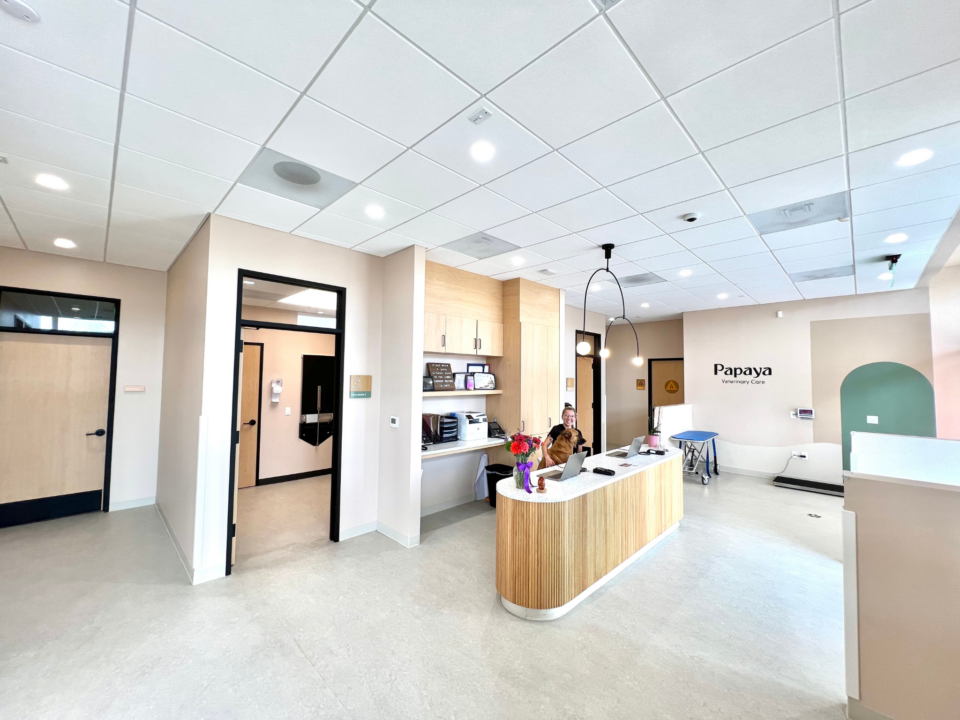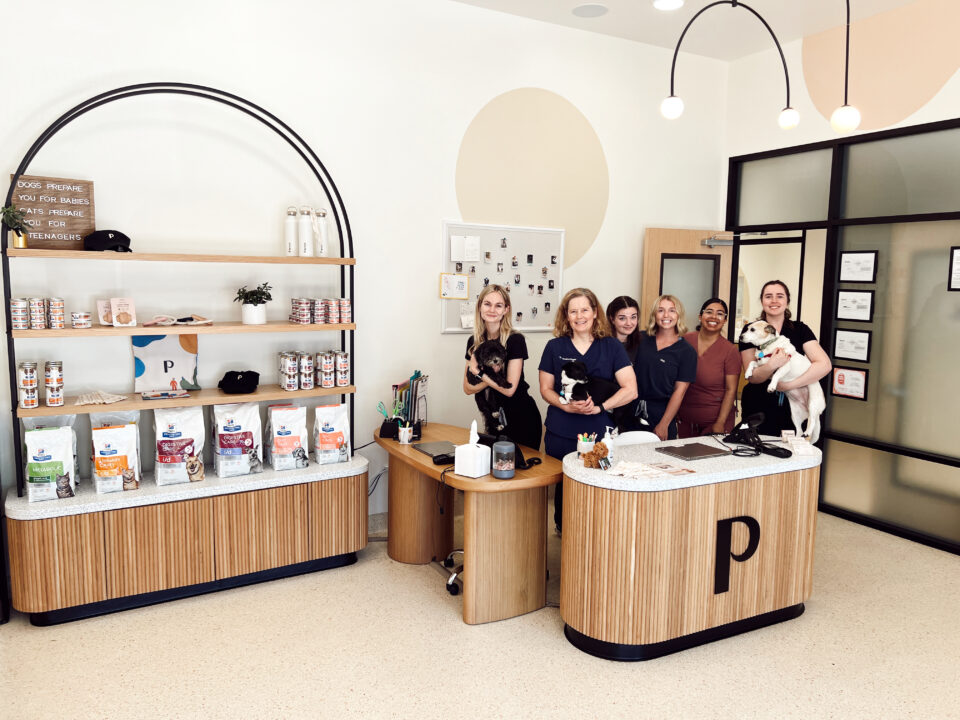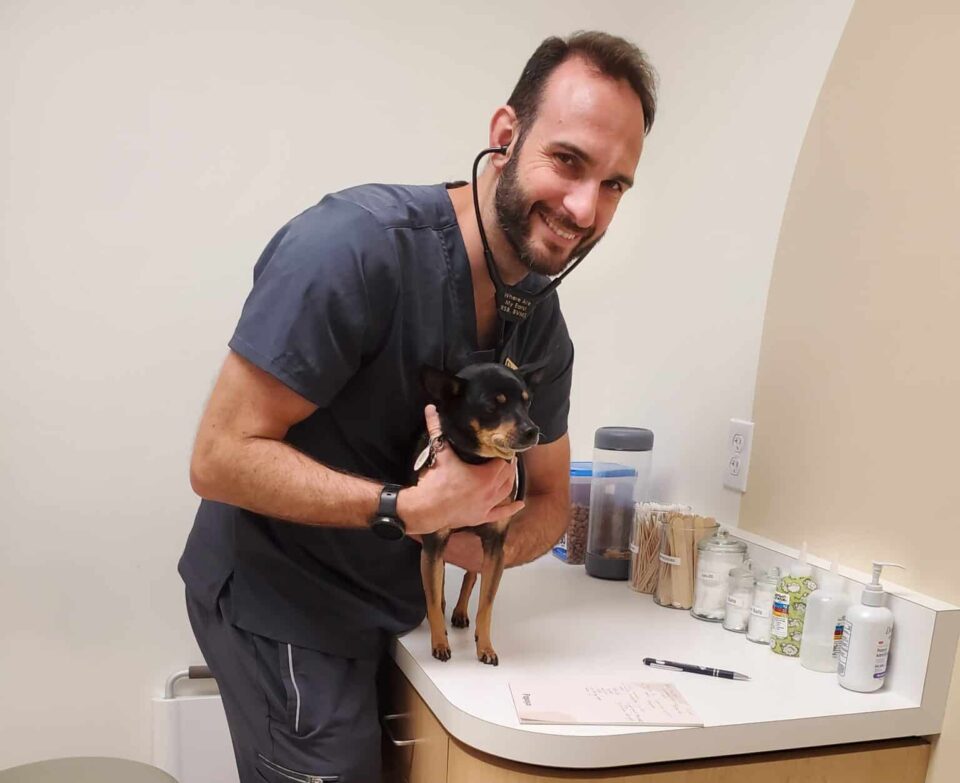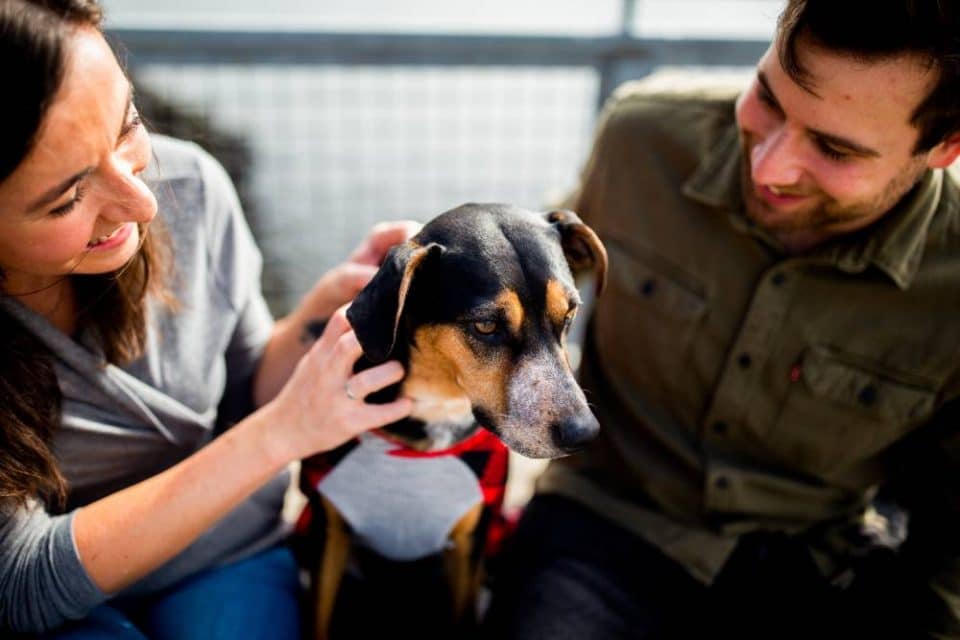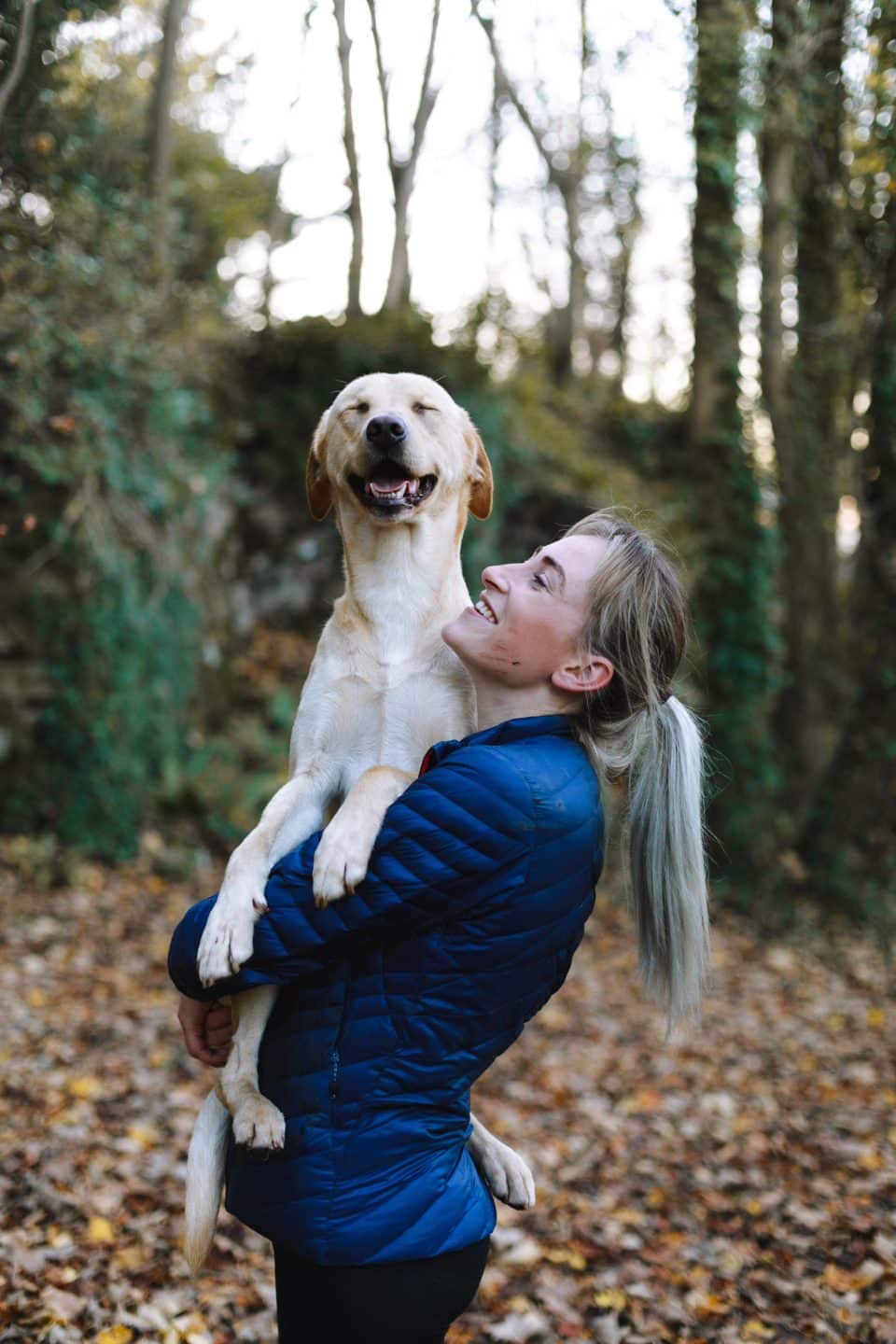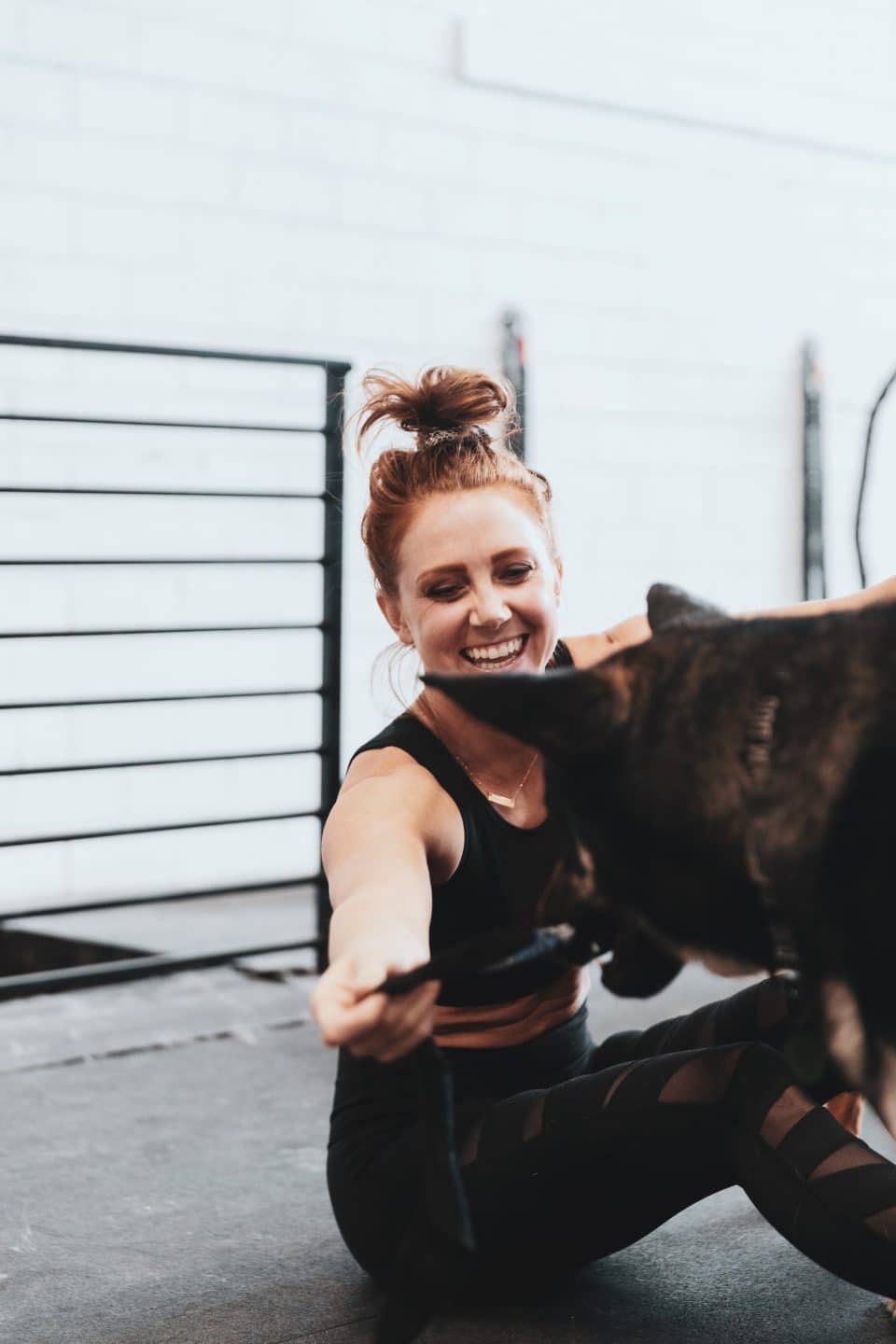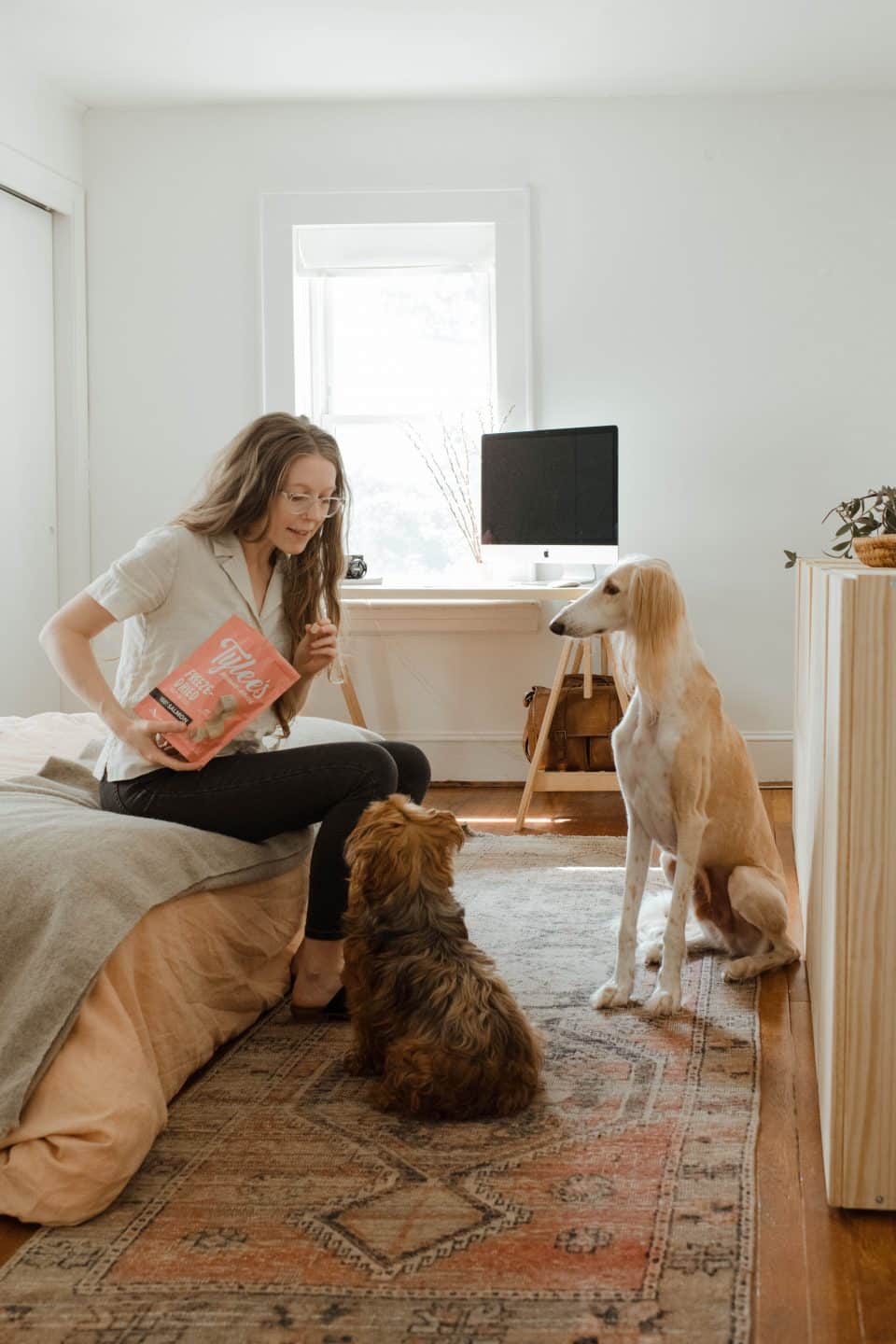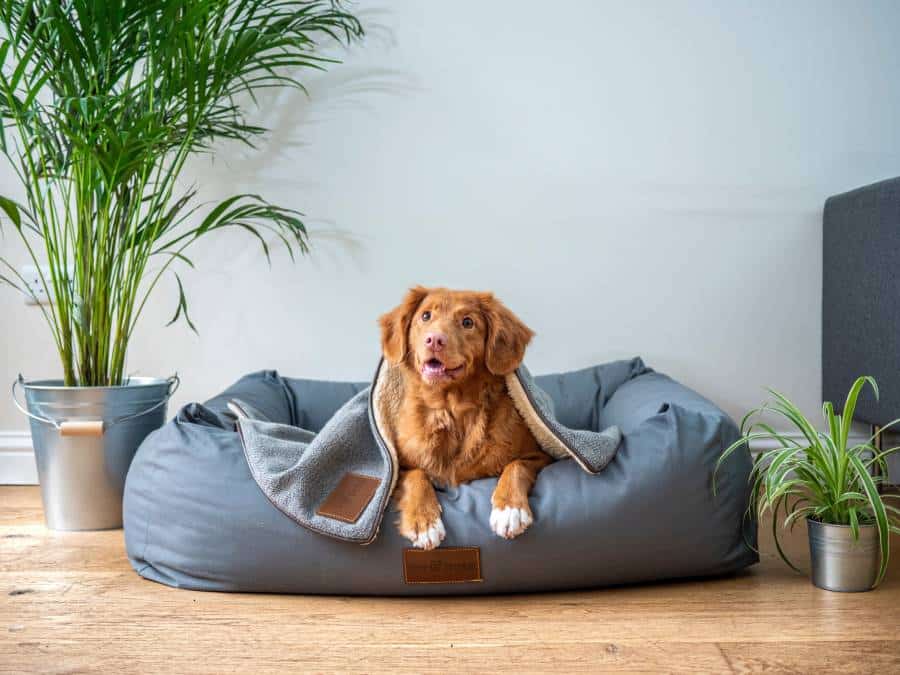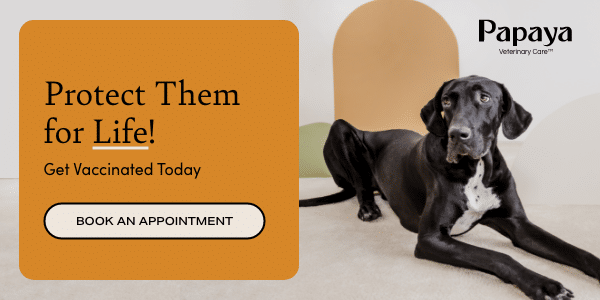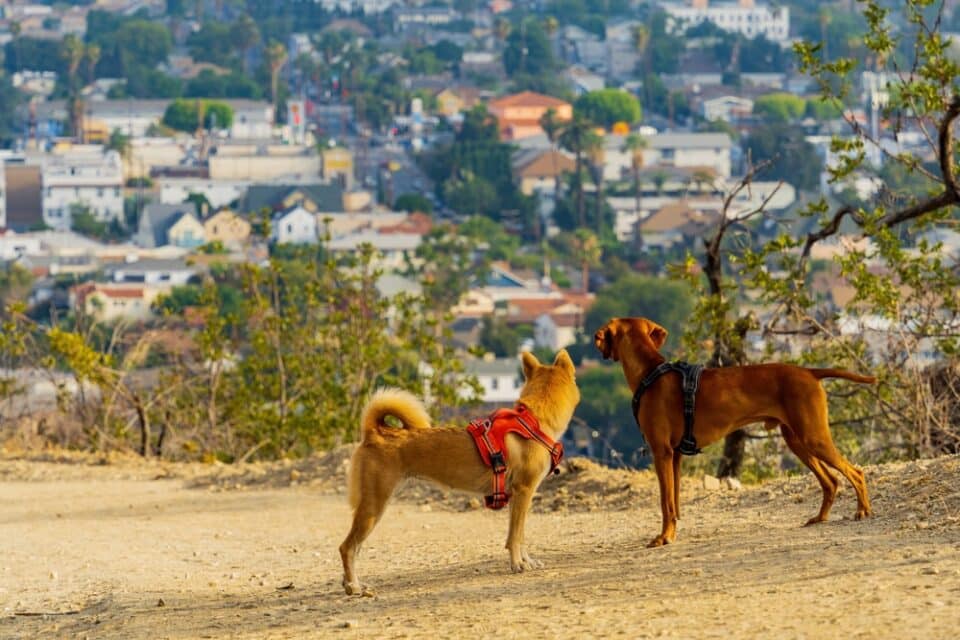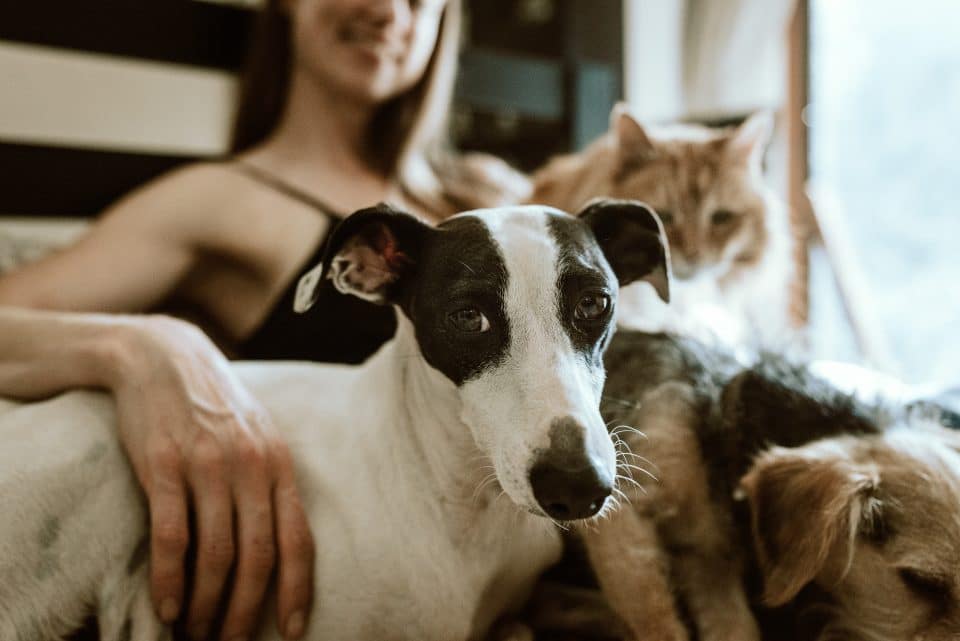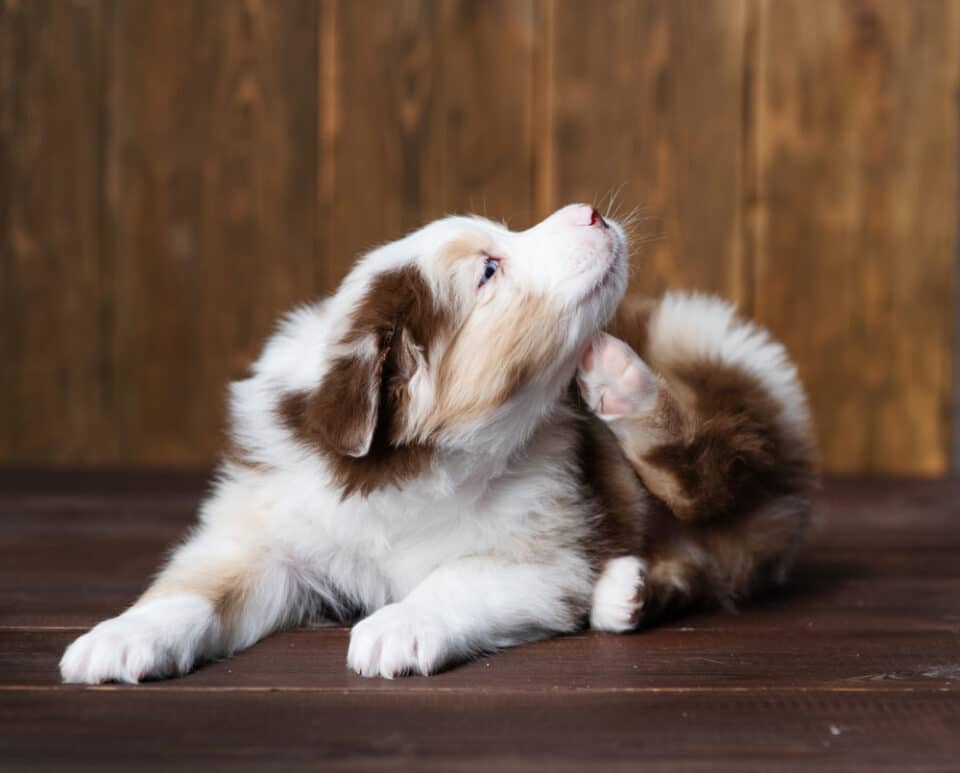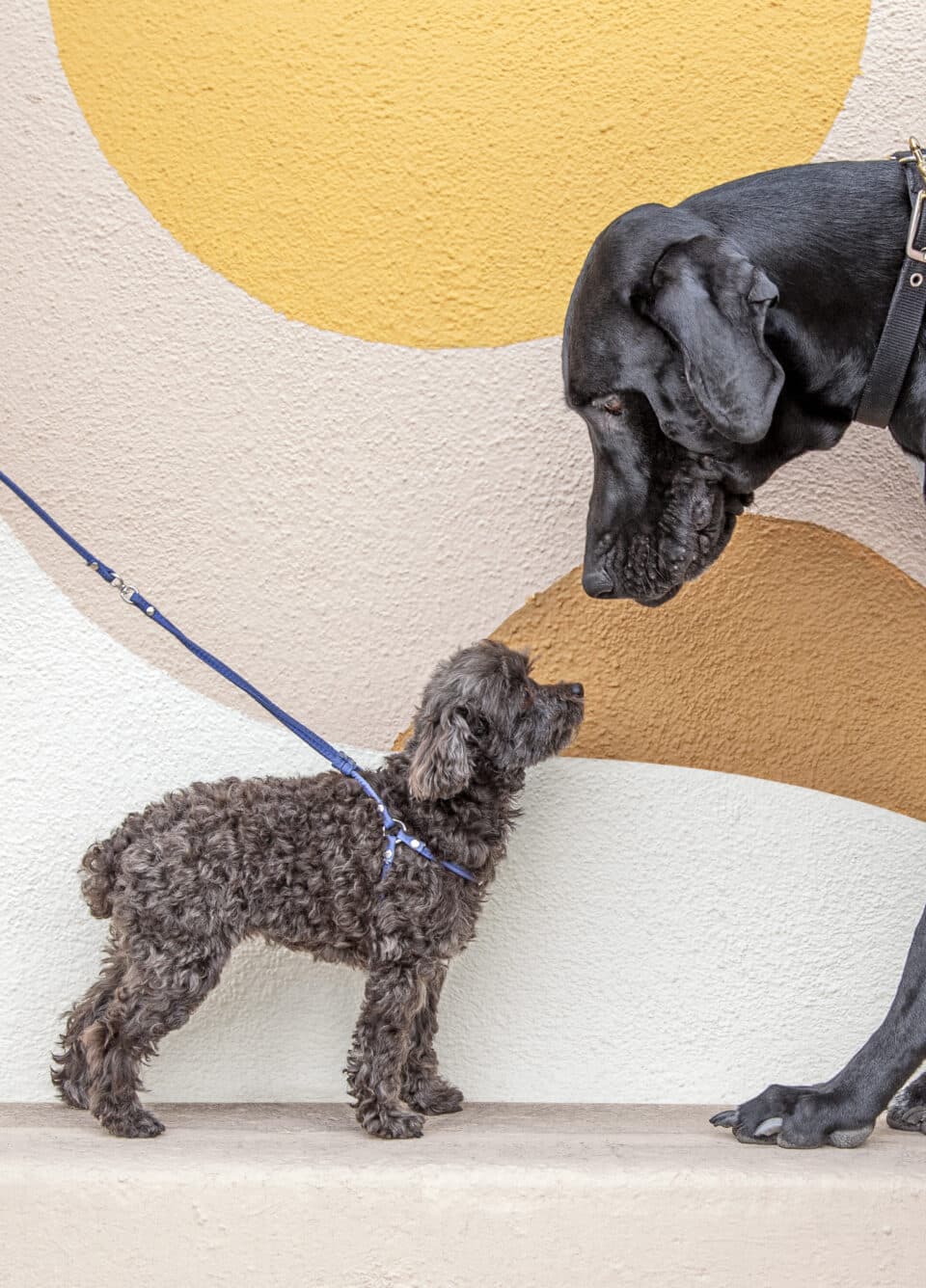Dogs
5 min read
When & How to Socialize a Puppy
Published on Jul 10, 2023
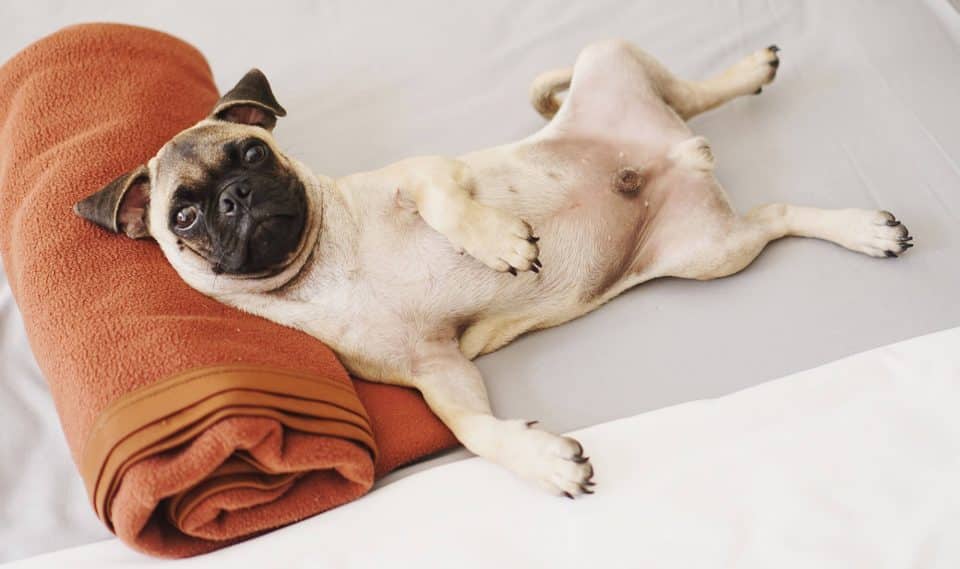
Socialization is an important part of raising a well-behaved, relaxed, and friendly dog. Puppy socializing will allow your new puppy to be more comfortable with new people and environments, leading to a long and happy life.
The Benefits of Puppy Socialization
Puppy socialization is a crucial foundation for raising a well-adjusted and emotionally healthy dog, serving as a vital building block in your canine companion’s life.
Through proper socialization, puppies learn essential social skills, gaining exposure to various environments, sounds, and smells. This early exposure is instrumental in preventing future behavioral issues such as aggression, fear, and excessive shyness. As puppies become familiar with different situations, their confidence grows, reducing the likelihood of developing anxieties or phobias later in life. This confidence also makes them more adaptable to new environments and changes in their living situation, whether it’s a move to a new house or a change in family dynamics.
The benefits of puppy socialization extend to improved behavior, as puppies learn how to interact positively with people and other dogs. This friendliness and reliability make them excellent companions, more likely to react positively to new people or experiences. Additionally, well-socialized puppies are more receptive to training, grasping commands and cues faster, which makes them easier to teach and more obedient.
A properly socialized dog is also safer in potentially threatening situations, as they are less likely to react aggressively, reducing the risk of bites or confrontations. This safety aspect is particularly important during visits to the dog park or other public places.
Moreover, socialization strengthens the human-animal bond, creating a sense of trust and companionship that can last a lifetime. By investing in your puppy’s socialization, you are setting the stage for a lifetime of mutual happiness and a strong, loving relationship.
In summary, the key benefits of puppy socialization include:
- Improved behavior and social skills
- Increased confidence and adaptability
- Enhanced friendliness and reliability
- Faster learning and obedience during training
- Safety in unfamiliar or potentially threatening situations
- A stronger human-animal bond
Can you socialize a puppy before they’re fully vaccinated?
Knowing your pet’s vaccine schedule can help you get them ready for proper socialization. Puppies are more open to new experiences than an older dog, typically between the ages of three and 12 weeks, but puppy vaccinations play a role in how and when dog socialization should take place. Although they likely won’t be fully vaccinated at this time (puppies receive their first roundat apet vaccination clinicbetween six and eight weeks old), early socialization can prevent behavior problems from developing. Here are some easy ways to begin socialization that are safe for you and your unvaccinated or partially vaccinated young puppy.
- Take your puppy for a walk around the neighborhood in a stroller or carrier to introduce them to new sights, smells, and sounds.
- Introducing your puppy to friends and family. They can also meet familiar dogs who you know are fully vaccinated.
- Bring your puppy to dog-friendly shopping areas or restaurants where they might see different people and their animals, but not play with them like they would at the park.
How to socialize a puppy after they’re vaccinated
After 12 weeks, the socialization period continues to be an important part of developing your pup’s good behavior. Fully vaccinated pups can explore dog parks and dog beaches, though you may want to keep them on a leash to start. You can also look into puppy socialization classes that will encourage interactions with other dogs and people in a controlled environment to prepare them for a new situation in the real world. If you’re anticipating flying with a dog in the future, the socialization period can help make the new environment transition smoother. Puppy socialization class is also a great chance to meet a pet parent friend yourself!
Your Puppy Socialization Checklist
We know puppy socialization can be a lot to handle, so here’s a handy checklist to help you along the way. Remember, it’s all about taking one step at a time, so go at your puppy’s pace.
Pre-Vaccination Socialization (3 to 12 Weeks)
- Stroller and Carrier Adventures: Take your puppy for a walk around the neighborhood in a stroller or carrier to introduce them to new sights, smells, and sounds.
- Meet and Greet with Friends and Family: Allow your puppy to meet friends and family who are familiar with dogs and can provide a positive experience.
- Dog-Friendly Outings: Bring your puppy to dog-friendly shopping areas or restaurants where they can observe different people and their animals, even though they may not play with them like they would at the park.
Post-Vaccination Socialization (After 12 Weeks)
- Explore Dog Parks and Beaches: Once your pup is fully vaccinated, they can enjoy the freedom to explore dog parks and beaches. Pick the best type of leash for your dog so they stay safe and comfortable.
- Puppy Socialization Classes: These classes provide a controlled environment where your pup can interact with other dogs and people, preparing them for real-world experiences. You may also learn key dog training tips.
- Prepare for Future Adventures: If you foresee traveling with your dog, the socialization period can make the transition to new environments smoother. Exposure to various settings, sounds, and people will help your pup adapt.
- Make Friends: Don’t forget, puppy socialization classes are not just for your dog – they’re also an excellent opportunity to meet fellow pet parents and share your experiences.
This checklist is your roadmap to ensuring your puppy grows up to be a confident and well-adjusted dog. Remember, each pup is unique, and it’s important to tailor your approach to their individual needs.
Some extra tips for successful puppy socialization
The socialization process for a puppy takes time and patience, and is all about taking one step at a time. Go slow and pay attention to how your puppy reacts to certain environments and situations. Practice positive reinforcement with plenty of praise and treats.
Remember, puppies can easily pick up on human emotions. If you’re stressed, they’ll be able to tell. So, when you’re socializing your puppy with adult dogs, keep calm and provide lots of encouragement. If you notice your puppy becoming fearful, it’s not a problem to remove them from the situation!
Need more support in socializing a puppy? Papaya is here to support a long and happy life with our canine pals. Our vets are happy to provide advice and recommendations to ensure your pup is well adjusted and at ease around other dogs and different people.
The information in this blog is reviewed and approved by the veterinarians at Papaya Pet Care.

